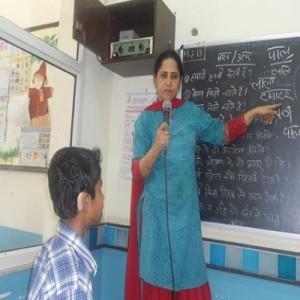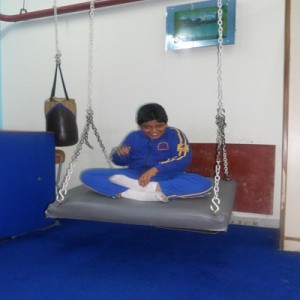Moving Above Down Syndrome
What is Down Syndrome?
Does your child have physical growth delays? Do they display intellectual disabilities? If yes, they might be suffering from Down Syndrome – a genetic disorder that is caused by the presence of all or part of a third copy of chromosome 21.
Named after John Langdon Down, who fully described the syndrome in 1866, Down Syndrome has no cure. Here’s a short video to explain the condition in greater detail.
Video link: https://www.youtube.com/watch?v=nguLcSzN7mM
Video Credits: UDSFoundation
How to identify Down Syndrome?
Now that you know what Down Syndrome is, how do you identify if someone is suffering from this condition? Some physical attributes help in easy identification of people affected with Down Syndrome, so look out for these signs if your child or someone you know is displaying abnormal behaviour.
Those affected with Down Syndrome nearly always have physical and intellectual disabilities. As adults, their mental abilities are typically similar to those of an 8 or 9 year old. They also typically have poor immune function and generally reach developmental milestones at a later age. Apart from the above, people with Down Syndrome may have some or all of these physical characteristics: a small chin, slanted eyes, poor muscle tone, a single crease of the palm, and a protruding tongue due to a small mouth and relatively large tongue. Growth in height is slower, resulting in adults who tend to have short stature — the average height for men is 154 cm (5 ft 1 in) and for women is 142 cm (4 ft 8 in).
Are people with Down Syndrome any different?
Apart from the obvious identifiable traits, people with Down Syndrome are as normal as us. They can grow up to go to college, get married, work and live a fun and happy life. They want to make friends, go to parties and be included in classrooms or the workplace. With the right education and support, individuals with Down Syndrome can often write their own success stories.
People with Down Syndrome are no different than individuals who don’t suffer from the condition, but society often neglects the former, alienating them from the necessary support and encouragement required to excel in anything. Our neglect often stems from our ignorance and lack of knowledge, which is why many organisations around the world are working towards this cause. Each year, 21st March is celebrated globally as ‘World Down Syndrome Day’ with the objective of raising awareness and building empathy around the condition. So, if you have a child suffering from Down Syndrome or know anyone who does, make sure you support them and help them reach their true potential.












